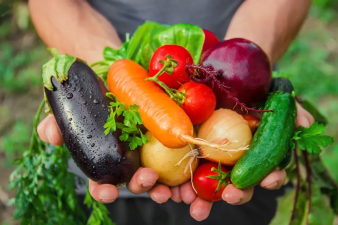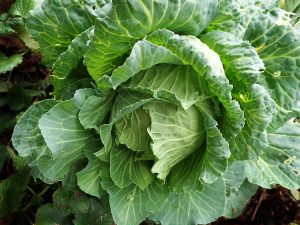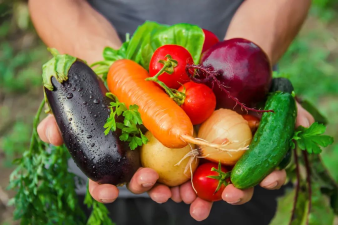How to make breakfast in 10 minutes
Should organic produce be more expensive?
In recent years, organic food has become more and more popular among consumers. The organic sections of supermarkets attract customers who are willing to pay higher prices for foods labeled "organic." Organic food is advertised as natural, nutrient-free, and safer without chemical additives, but is it really worth the higher price? This article will explore the definition of organic food, common myths, environmental and health impacts, and whether you should pay more for organic food.
What is organic food?
Organic food refers to food that is produced, processed and marketed according to organic standards. These standards include not using synthetic pesticides, fertilizers, growth regulators, feed additives and other substances, and the production process must be away from industrial pollution sources and waste sites and other adverse environment. In addition, the production, processing and sale of organic food needs to be certified by government agencies to ensure that it meets organic standards.
Common myths about organic food
1. Myth: Organic foods don't use food additives
Many people think that organic food is all natural and no additives, but in fact organic food can use specific additives and processing AIDS. These additives are usually derived from natural sources, but still need to meet organic standards.
2. Myth: Organic food does not use pesticides, there will be no pesticide residues
Although synthetic pesticides cannot be used in organic foods, organic pesticides can be used. Organic pesticides are equally toxic and can remain in food, so organic food is not completely free of pesticide risks.
3. The myth: Organic food is more nutritious
Scientific studies have shown that there is no significant difference in nutritional content between organic and regular foods. Some studies have found that organic foods may contain more of certain nutrients, but these differences are usually small enough that organic foods do not have a clear nutritional advantage.
4. The myth: Organic food is safer
Organic foods don't use synthetic chemicals in their production, but that doesn't mean they're safer. Organic foods may contain natural toxins and mycotoxins, and organic fertilizers may pose a risk of bacterial and heavy metal contamination.
Environmental and health impacts of organic food
The production process of organic food does have a positive impact on the environment. For example, organic farming does not use synthetic fertilizers, reducing fossil fuel consumption and greenhouse gas emissions. In addition, organic agriculture often uses methods such as crop rotation and cover crops to help maintain soil health and biodiversity. However, organic farms are generally less productive than conventional farms and require more land to produce the same amount of food, which can lead to more land use and deforestation, with negative impacts on the environment.
From a health point of view, the advantages of organic food are not significant. While fewer pesticides are used in organic food production, they can still contain natural toxins and other contaminants. In addition, research has not definitively proven that organic foods are more effective than regular foods in preventing disease.
Is organic food worth the higher price?
Taken together, the high price of organic food is mainly due to the increase in its production cost. Because organic farming requires strict standards to be followed and often yields are lower, production costs are higher. However, there are other factors to consider as to whether consumers should pay more for organic food.
For some consumers, buying organic food is an investment in the environment and health, and they believe that the choice helps to reduce environmental damage and reduce chemical intake. However, for families on a budget, the high price of organic food may not be cost-effective. Research shows that eating enough fruits and vegetables (whether organic or not) is more important for health. If you reduce the intake of vegetables and fruits because of high prices, it will backfire.
There is no easy answer to the question of whether organic food should be more expensive. For consumers who care about environmental protection and personal health, organic food may be worth the investment. However, from a nutritional and safety point of view, organic food does not have a clear advantage over regular food. Ultimately, consumers should rationally choose whether to buy organic food according to their own economic situation and health needs. Whether you choose organic or regular foods, the key is to maintain a balanced diet and ensure adequate nutrient intake.
YOU MAY ALSO LIKE

- by Food
- 468,328
- 2024-06-30

- by Food
- 354,571
- 2024-07-02

- by Food
- 334,580
- 2024-07-24

- by Food
- 87,324
- 2024-07-15

- by Food
- 84,752
- 2024-07-15

